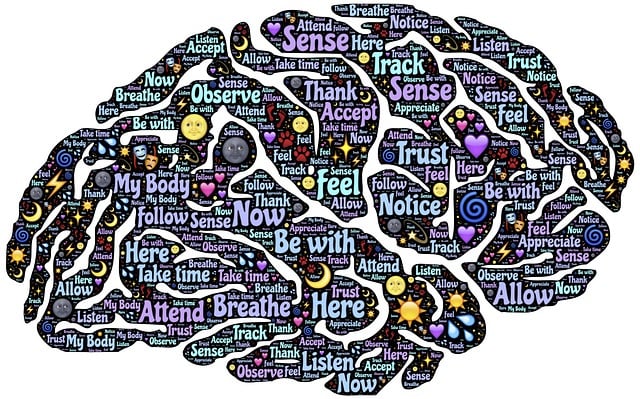Mental health policy is key to advocating effective support systems, focusing on early intervention, diverse therapy options like Longmont Independent Medical Evaluations (IMEs), and stigma reduction. Incorporating practices like Mindfulness Meditation can improve recovery outcomes. Accessing therapy in Longmont faces barriers from IMEs, which, while crucial for diagnosis, can cause delays for vulnerable individuals. A holistic approach combining IMEs, therapy, self-awareness exercises, and stress management techniques empowers individuals to manage stressors and promotes emotional well-being. Analysis and advocacy should leverage IME data, qualitative research, and burnout prevention strategies for healthcare providers to strengthen mental health services and community resilience.
Mental health policy analysis and advocacy are vital components of ensuring accessible, effective care. This article explores key strategies to navigate complex systems, focusing on the role of independent medical evaluations in facilitating therapy access. We delve into successful approaches, such as Longmont’s model, which offers a promising roadmap for improving mental healthcare. By understanding policy foundations and leveraging tools like IMEs, advocates can unlock transformative changes, especially in providing diverse populations with tailored therapy options.
- Understanding Mental Health Policy: A Foundation for Advocacy
- The Role of Independent Medical Evaluations in Therapy Access
- Longmont's Approach: Unlocking Effective Mental Health Care
- Strategies for Successful Mental Health Policy Analysis and Advocacy
Understanding Mental Health Policy: A Foundation for Advocacy

Understanding Mental Health Policy is a cornerstone for any advocacy efforts related to this critical issue. Mental health policy outlines the guidelines, regulations, and resources allocated by governments to support mental wellness. It encompasses access to quality care, insurance coverage, funding allocation, and public perception through education and awareness campaigns. Advocacy in this context involves pushing for policies that promote early intervention, integrate therapy options like Longmont Independent Medical Evaluations, and challenge stigma associated with mental illness.
By emphasizing the importance of policy, advocates can ensure that systems are in place to identify and support individuals struggling with mental health issues. Incorporating practices such as Mindfulness Meditation into these policies can further enhance recovery outcomes. Additionally, Mental Illness Stigma Reduction Efforts should be a key focus, as policy changes play a significant role in shaping public attitudes and promoting Mental Health Awareness.
The Role of Independent Medical Evaluations in Therapy Access

Access to therapy is a critical component of mental health care, but it’s often impeded by various barriers. One significant factor in this landscape are independent medical evaluations (IMEs), particularly in cities like Longmont where mental illness stigma reduction efforts are ongoing. These assessments, while intended to provide objective clinical insights, can sometimes create delays and serve as a barrier to entry for individuals seeking therapy. The process often involves extensive paperwork, additional appointments, and financial obligations, which might deter those already facing economic or social challenges.
However, IMEs also play a crucial role in ensuring the right care is provided. They offer a comprehensive evaluation of an individual’s mental health status, helping to diagnose specific conditions and guide treatment plans. For healthcare providers in Longmont, burnout prevention strategies are essential given the demanding nature of their work. Incorporating self-awareness exercises and promoting open discussions about mental health can mitigate professional exhaustion while enhancing patient care. Balancing these factors is key to fostering an environment where individuals can access necessary therapy without facing unnecessary obstacles.
Longmont's Approach: Unlocking Effective Mental Health Care

Longmont’s innovative approach to mental health care is centered around a comprehensive strategy that includes Independent Medical Evaluations (IMEs), therapy sessions, and an emphasis on emotional well-being promotion techniques. This holistic method recognizes that addressing mental health issues requires a multi-faceted attack. By conducting IMEs, healthcare professionals gain valuable insights into individuals’ psychological states, tailoring treatments to their specific needs.
Therapy plays a pivotal role in this process, offering safe spaces for individuals to explore and manage their mental health challenges. Alongside traditional therapy, Longmont incorporates self-awareness exercises and stress management techniques as integral components of care. These practices empower individuals with tools to navigate daily stressors, fostering resilience and promoting overall emotional well-being.
Strategies for Successful Mental Health Policy Analysis and Advocacy

Mental health policy analysis and advocacy require a multi-faceted approach to ensure meaningful change. One effective strategy is to leverage independent medical evaluations, such as those offered in Longmont, to gather robust data on mental health trends and outcomes. These evaluations provide objective insights into the effectiveness of current therapies and can identify gaps in care. By integrating this evidence with qualitative research, advocacy groups can construct compelling cases for policy reforms.
Additionally, fostering emotional regulation through coping skills development programs can empower individuals to navigate stress and adversity more effectively. This, coupled with burnout prevention strategies tailored for healthcare providers, creates a supportive ecosystem that enhances both patient outcomes and provider well-being. Such holistic approaches not only strengthen mental health services but also contribute to the overall resilience of communities.
Mental health policy analysis and advocacy are pivotal in shaping accessible, effective care systems. By understanding the nuances of mental health policies, such as the role of independent medical evaluations (IMEs), we can unlock barriers to therapy, as demonstrated by Longmont’s successful approach. Incorporating IMEs strategically ensures informed treatment decisions while fostering a more inclusive mental health landscape. Through comprehensive analysis and advocacy, we can navigate complex systems, ensuring individuals receive the care they need, ultimately enhancing overall well-being.














